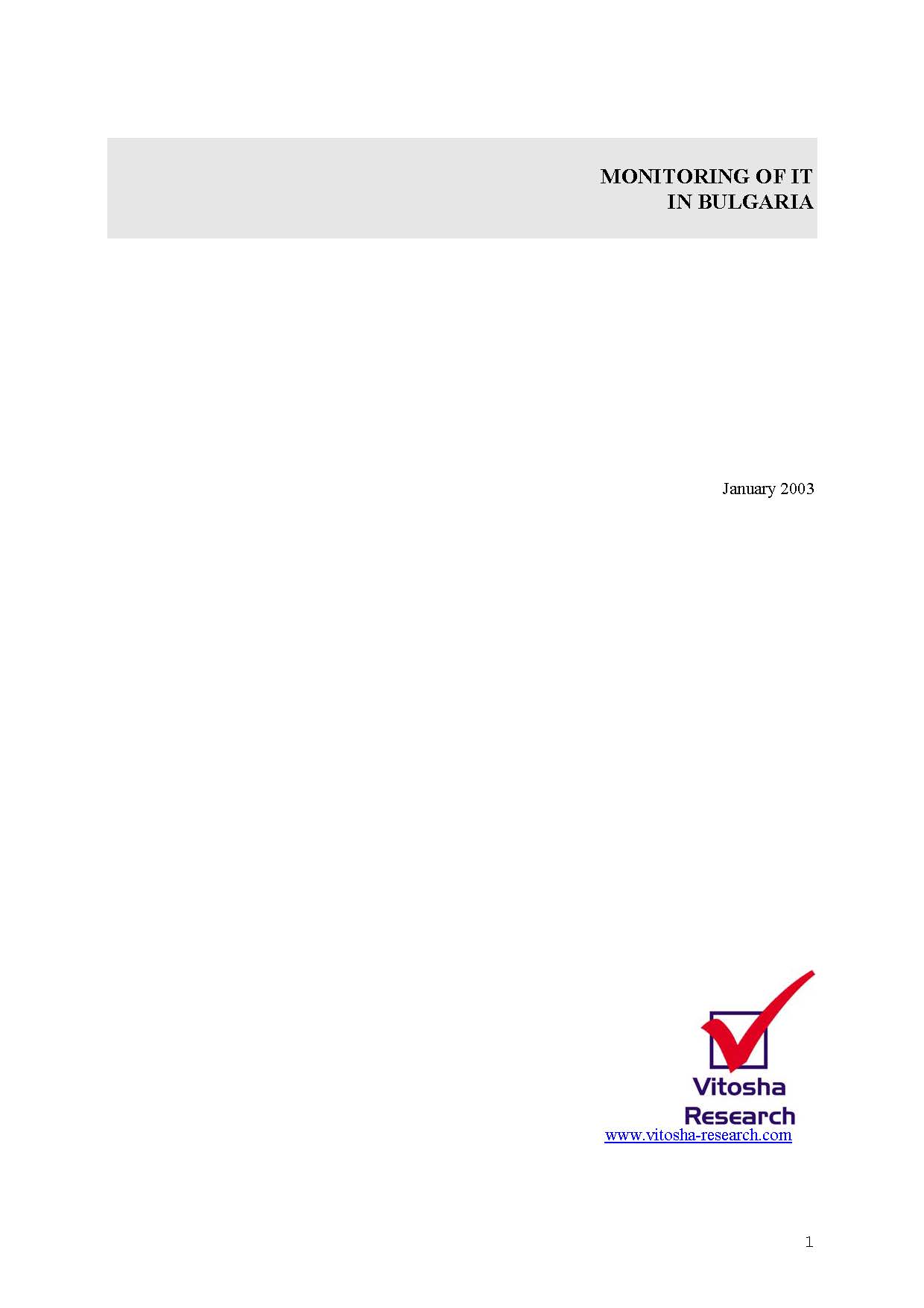
MONITORING OF IT IN BULGARIA, JANUARY 2003
The main objective of the IT monitoring conducted by Vitosha Research is to observe periodically and in a systemic way the distribution and use of PCs and Internet by Bulgarians.
More...We kindly inform you that, as long as the subject affiliation of our 300.000+ articles is in progress, you might get unsufficient or no results on your third level or second level search. In this case, please broaden your search criteria.

The main objective of the IT monitoring conducted by Vitosha Research is to observe periodically and in a systemic way the distribution and use of PCs and Internet by Bulgarians.
More...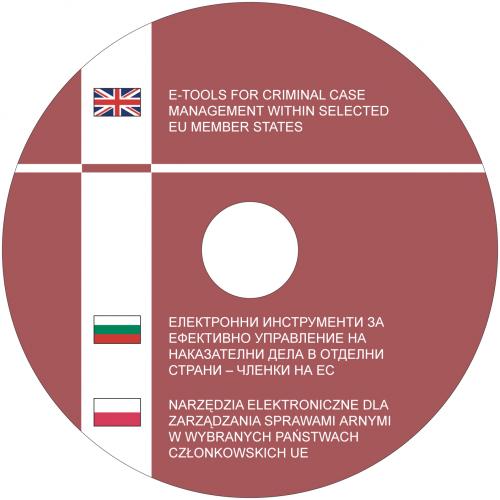
In recent years, public authorities have begun to adopt several statutory reforms to incorporate ICT into everyday tasks of judicial systems’ actors. In the European sphere, the concept of e-justice has been mainly developed in justice administration. This publication provides comparative analysis of current practices of justice recordkeeping and the electronic tools for measuring the judicial system performance in Finland, Belgium, Greece, Italy, Spain, Germany, and England and Wales as well as an overview of the introduction of ICT in the judiciaries of Bulgaria and Poland.
More...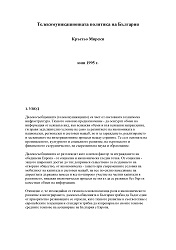
Telecommunications (telecoms) are part of the global technical infrastructure. Their main purpose - to ensure the exchange of information of any kind, at any scale and in all directions, making them indispensable condition not only for economic development at national, regional and global scale, but also the emergence, implementation and strengthening of integration processes between the countries. They are the foundation of industrial, cultural and social development, trade and financial cooperation of modern science and education.
More...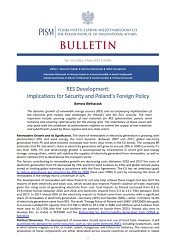
The dynamic growth of renewable energy sources (RES) and accompanying digitalisation of the electrical grid creates new challenges for Poland’s and the EU’s security. The most important include securing supplies of raw materials for RES (photovoltaic panels, wind turbines) and ensuring cybersecurity for the energy grid. The importance of these issues will only grow with the ambitions of authoritarian regimes to control the supply of raw materials and cyberthreats posed by these regimes and non-state actors.
More...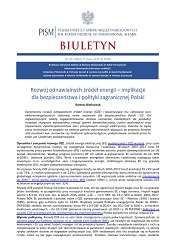
Dynamiczny rozwój odnawialnych źródeł energii (OZE) i towarzysząca mu cyfryzacja sieci elektroenergetycznych stanowią nowe wyzwania dla bezpieczeństwa Polski i UE. Do najważniejszych należą zagwarantowanie dostaw surowców niezbędnych do produkcji instalacji służących wytwarzaniu energii (paneli fotowoltaicznych, turbin wiatrowych) oraz zapewnienie cyberbezpieczeństwa sieci przesyłowych energii elektrycznej. Kwestie te będą coraz istotniejsze ze względu na ambicje państw autorytarnych dążących do przejęcia kontroli nad zasobami ww. surowców czy działania cyberprzestępcze, podejmowane zarówno przez te kraje, jak i podmioty pozapaństwowe.
More...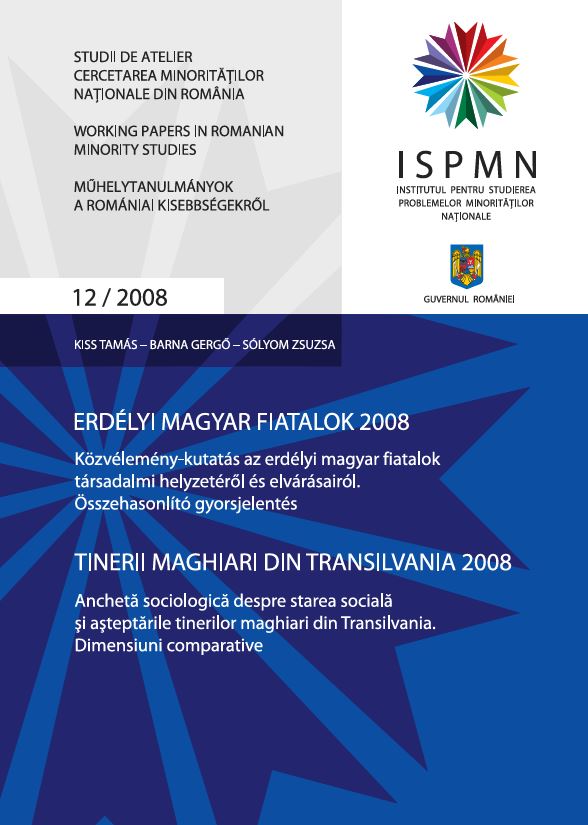
„Csak abban a statisztikában hiszek, amit én hamisítottam” – így hangzik Winston Churchill egyik hires nyilatkozata. Sajnos Romániában nem ritka a közvélemény-kutatások közötti „háború”, ahol nem az a lényeg, hogy milyen eredményeket mutatnak az elemzések, hanem, hogy melyik intézménynek, pártnak, politikusnak nagyobb a támogatása, kit kell legitimálni. Az Országos I_úsági Hatóság rendszeresen végez vagy végeztet kutatásokat, hiszen meggyozodésünk, hogy pártszínezettol függetlenül minden kormány i úságpolitikájának az így szerzett eredményeken kell alapulnia. A romániai magyar atalok körében végzett kutatás az elso ilyen jellegu felmérés, amelyet román költségvetési nanszírozással készítettek. Az adatokat elemezve, összehasonlítva, számomra a legfontosabb következtetés, hogy mind a román, mind a magyar ataloknak pozitív a jövoképe. Nem önmagukban az egyes mutatók biztatóak, hanem a tendenciák. A zetéssel, munkahellyel, közérzettel, kivándorlással, oktatással, általános jóléttel kapcsolatos adatok az elmúlt években folyamatosan pozitív irányba mozdultak el. Ez a politikum számára mindenképpen reménykelto, de nem azt kell jelentenie, hogy elértünk egy folyamat végére. Tovább kell dolgozni a atalok számára biztosítandó lehetoségek bovítésén, és be kell vonni a atalok önszervezodéseit, hogy ezekbol a lehetoségekbol közösen eredményeket lehessen elérni.
More...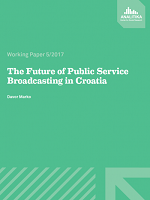
The transformation of the former state-controlled Radio-television Zagreb into a broadcaster serving the public interest in Croatia, and its subsequent reform to comply with the European standards and principles is the main focus of this paper. Croatian-Radio Television (Hrvatska radiotelevizija, or HRT) - as the reformed broadcaster was named after the first multi-party elections in 1990 - underwent several developing stages. The analysis provided within the study reflects on the process of its evolution against the backdrop of specific political, social and economic factors, also taking into account challenges of a substantial and technological nature. In recent years, as Croatia moved towards full membership of the EU, the status and operation of the PSB, as well as its broadcasting regulatory mechanisms and media policies, were reviewed to bring them in line with the new EU regulations. Croatia’s case seems somewhat unique compared to other countries that were once part of the former Socialist Republic of Yugoslavia, but it also shares some similar contextual characteristics. First and foremost, the funding model is what sets apart the Croatia’s PSB from other Western Balkan post-socialist states. Considered one of the most successful models, HRTs license fee collection system has been continuously and systematically improved since the 1960s when it was first introduced. Albeit the level of editorial independence and financial sustainability has seen frequent oscillations at different points in time, HRT maintains its financial sustainability, and manages to drive its internal development. Like the other countries, Croatian PSB is under permanent political pressures, while its program has been commercialized, becoming less distinctive from content provided by commercial competitions. In order to assess the transformation of HRT into a public service, considering the challenges to its current operation and further development, the paper intends to answer the following questions. The first is related to the development of regulation and media policies in regard to PSB, including the various actors involved, the political setting, and internally or externally driven reforms. The second question targets the current regulation, status and role of the PSB in Croatia, with special attention to the PSB remit, funding model, formal and de-facto independence, market share, and the progress regarding technological innovations and digitalization. Finally, the paper deals with the challenges to the PSB operation in Croatia, taking into account ongoing debates on the global level, and country-specific discussions. This research draws upon the ongoing debates on the status and operation of PSB in a changing media environment. Technology developments, commercialization processes and the growing role of the market in defining media roles and audience tastes, information abundance, and audience fragmentation significantly define what we know today as ‘media ecology’. In such a context, the status and role, funding model and social role of PSB, and its relation with the audience, are contested. To evolve into a genuine public media, Croatian Radio-Television has to face these challenges both internally and externally. This study follows recent and ongoing debates on the future of PSM, and builds its analytical framework on concepts and ideas developed by contemporary PSM scholars such as Donders, Lowe, Moe and Van den Bulck, also taking into account theoretical accounts of media and PSB developments in the post-socialist area, including Jakubowicz, Sukosd, Splichal, and others. This research paper is divided in four main sections. The following section outlines the main theoretical concepts and the key debates in regard to the future of PSB. The third section reflects on the country background including political and economic factors, the development of the media system in Croatia and its PSB. The final section summarizes the main findings and discusses them in relation to the socio-political context and contemporary trends related to regulation, funding and the technological developments related to PSB in general. A discussion of the main trends and dilemmas on the European and regional level is presented within the final section.
More...
The project “Young people in Montenegro – social ornament or social capital?” seeks to contribute to the empowerment of young people in Montenegro and to their active participation in the promotion of democratic values that also lie at the foundation of the European Union. More specifically, the objective of this project is to raise the awareness of the public and interested parties about the issues, problems and the prospects of young people in Montenegro, as well as to strengthen the capacities of young people for active participation in social and political processes. The importance of this project is reflected in the fact that it provides a comprehensive insight into one of the most marginalised social groups in the Montenegrin society – a group that is often talked about, but whose needs, opinions, views and potential have never been adequately recognised or assessed. Consequently, the young people lack the tools to confront the challenge of carving a place for themselves in the society and exerting influence on the current affairs.
More...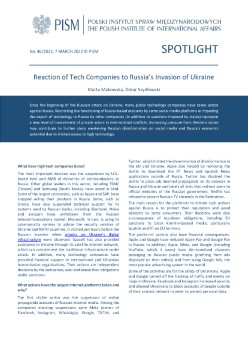
Since the beginning of the Russian attack on Ukraine, many global technology companies have taken action against Russia. Restricting the functioning of Russia-based accounts by some social media platforms or impeding the export of technology to Russia by other companies (in addition to sanctions imposed by states) represent a new level of involvement of private actors in international conflicts. Increasing pressure from Western states may contribute to further steps weakening Russian disinformation on social media and Russia’s economic potential due to limited access to high technology.
More...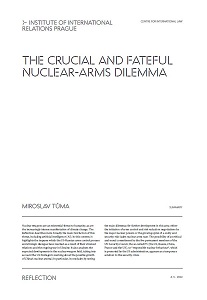
Nuclear weapons are an existential threat to humanity, as are the increasingly intense manifestation of climate change. The Reflection describes more broadly the main risk factors of this threat, including artificial intelligence (AI). In this context, it highlights the impasse which the US-Russian arms control process and strategic dialogue have reached as a result of their strained relations and the ongoing war in Ukraine. It also analyses the expected developments in the nuclear weapon field, taking into account the US Pentagon’s warning about the possible growth of China’s nuclear arsenal. In particular, it concludes by noting the main dilemmas for further development in this area: either the initiation of arms control and risk reduction negotiations by the major nuclear powers or the growing spiral of a costly and security-risk-laden nuclear arms race. The possibility of an ethical and moral commitment by the five permanent members of the UN Security Council, the so-called P5 (the US, Russia, China, France and the UK), to “responsible nuclear behaviour“, which is promoted by the US administration, appears as a temporary solution to this security crisis.
More...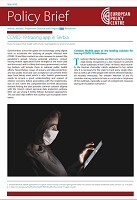
Governments across the globe are increasingly using digital tools to accelerate the tracking of people infected with COVID-19 and their contacts as a key measure to prevent the pandemic’s spread. Among potential solutions, contact tracing mobile applications have emerged as the most used and discussed, and it is likely that many governments, including Serbia’s, will include them in national public health efforts. Nevertheless, issues of privacy and data protection, and low public trust and user acceptance can prevent these apps from being used, which is why Serbia’s government needs to ensure a good understanding and respect of citizens’ concerns before proceeding with the implementation of one. Given the comprehensive EU-level discussions towards finding the best possible common solution aligned with the Union’s robust personal data protection policies, little can go wrong if Serbia follows European approaches. This can also help rea rm the country’s pro-European orientation.
More...